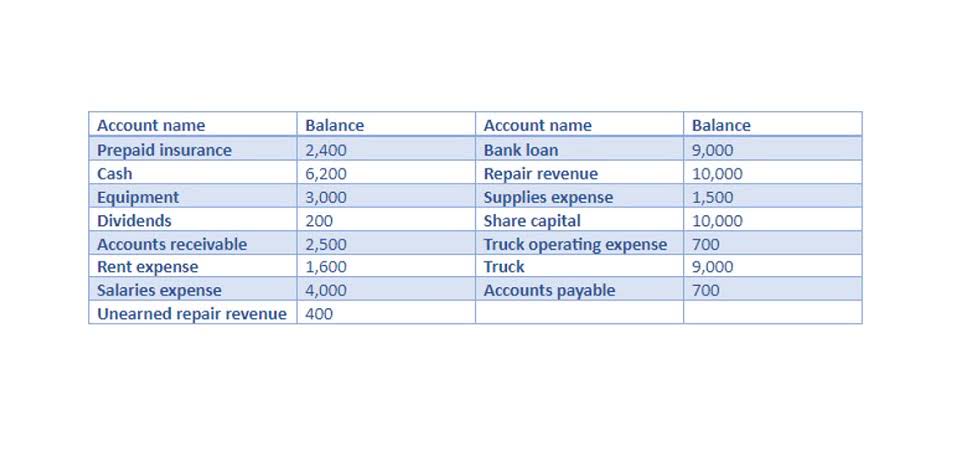
MyCase Accounting, at the outset, provides detailed business intelligence data. The onboarding period will take you through your first three-way trust reconciliation process. For a litigator without formal financial training, keeping the books in order — and the firm ready to pass a bar association audit — can be even more daunting. We’ll go over the cash and accrual accounting along with the pros and cons of both below. Our 2024 Legal Industry Report revealed that those who offered online payments had a 50% invoice recovery rate compared to those who offered checks and cash.
Commingling Funds

Solutions like MyCase Accounting allow you to streamline accounting work, case data, and client billing to give you control and visibility over your firm’s finances. Cash accounting, or cash basis accounting, is when a firm reports transactions only when bookkeeping and payroll services cash is received or paid out. This is the simpler method of the two and is commonly used by small businesses. The next step is to nail down your law firm’s budget and related goals to help keep your team financially afloat. For example, you may invest in professional development opportunities if your goal is to expand your team’s skill sets.
- Your potential new hire should have experience working with law firms, managing IOLTA accounts, and navigating trust accounting requirements.
- It lists the firm’s assets, liabilities, and equity, offering insights into its financial stability and health.
- Plus, it is time-consuming, and your time is better spent advocating for clients and growing your firm—not struggling with trust reconciliations, tax filings, or financial tracking.
- Clio Manage and other programs help firms organize their financial activities, from the expense and revenue tracking to managing billables.
- Accountants can help uncover cost-saving opportunities, identify the most profitable cases your firm should consider, and discover opportunities to improve cash flow.
Legal Billing Software Features to Look For
The advantages of legal accounting software multiply with today’s cloud-based solutions. You can’t use Excel spreadsheets to maintain all of your financial books and records for an entire year. When used for that much data, Excel becomes clunky and lacks features you could use to improve your reporting. There are plenty of great legal accounting solutions available that can help get you started.

How to Prepare a 1099 for Attorney Fees and Settlements

This results in wasted time, mismatched records, billing complications, and even compliance violations. While the chart of accounts is customized to your law firm’s size, jurisdiction, and practice area, it typically includes five core categories in addition to numerous subcategories. Bookkeepers record the financial transactions and balance the financial accounts for your law firm bookkeeping firm.
- For example, some businesses use different methods based on the account or type of expense.
- You should also inquire into each candidate’s education and training related to legal accounting.
- There is no room for error when blending client funds with law firm funds.
- Moreover, it enhances the overall security of the firm’s financial assets, protecting against internal and external threats.
A flexible system that grows with the firm can prevent the need for costly software transitions down the line. Consistently reviewing your financials helps you identify growth opportunities, manage cash flow, and address any issues before they escalate. Trust accounts are one of the most common areas where legal accounting mistakes are made. Whether you mismanage the accounts, put funds in the wrong account, accidentally use funds, or fail to report correctly, trust accounting errors are a big deal in accounting for law firms. Trust accounting mistakes can lead to penalties, suspension, or even losing the right to practice law. As a law firm, your ability to capture billable hours directly impacts your revenue.

Choose your method for accounting

One of the biggest compliance issues that law firms face is commingling client funds with operating funds, which is a major violation of legal ethics rules. It’s critical to ensure that trust accounts are managed with precision net sales and that funds are never misused for firm operations. In other industries, it is allowed to keep clients’ prepayments in your operating account and use the money to fund client projects. But legal bookkeeping and accounting in law firms are different than for other businesses. Your client trust accounts are required to keep separate from your business accounts.
Manual bookkeeping can also lead to small mistakes—like duplicate entries—that can lead to reporting and compliance issues down the road. Many lawyers are required to set up Interest on Lawyer Trust (IOLTA) accounts depending on the state they operate in. Interest earned on IOLTA accounts is sent directly to local Bar Associations to support charitable legal services. Regardless if you’re directly managing your firm’s accounting, it’s important to familiarize yourself with basic accounting terms and principles. A baseline understanding can make it easier to review reports and comprehend recommendations from your accounting team. Using LawPay as your legal payment processor makes it easy to securely offer multiple payment options while maintaining trust account compliance.
